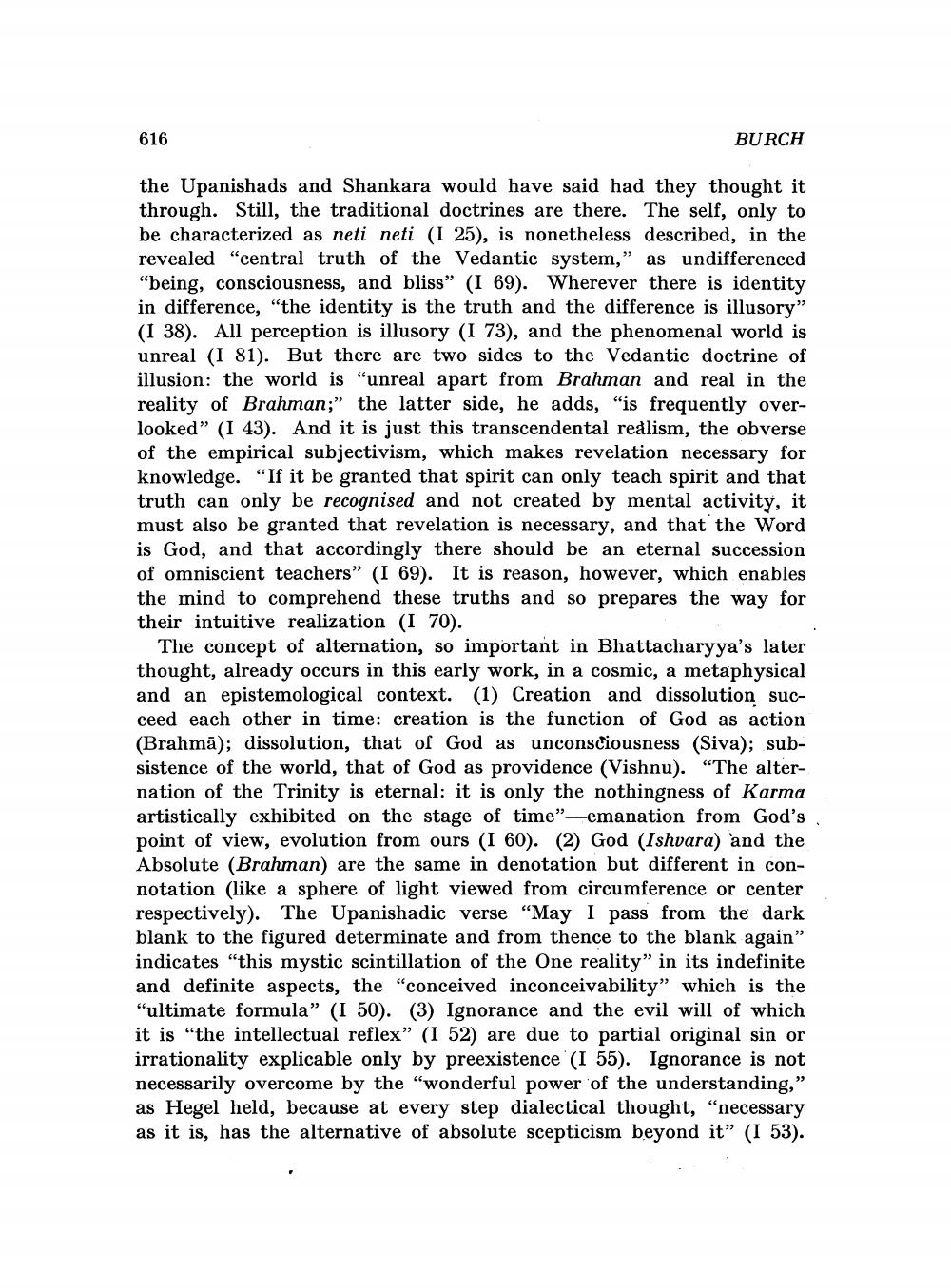________________
616
BURCH
the Upanishads and Shankara would have said had they thought it through. Still, the traditional doctrines are there. The self, only to be characterized as neti neti (1 25), is nonetheless described, in the revealed "central truth of the Vedantic system,” as undifferenced "being, consciousness, and bliss" (1 69). Wherever there is identity in difference, "the identity is the truth and the difference is illusory" (I 38). All perception is illusory (I 73), and the phenomenal world is unreal (1 81). But there are two sides to the Vedantic doctrine of illusion: the world is "unreal apart from Brahman and real in the reality of Brahman;" the latter side, he adds, "is frequently overlooked" (I 43). And it is just this transcendental realism, the obverse of the empirical subjectivism, which makes revelation necessary for knowledge. "If it be granted that spirit can only teach spirit and that truth can only be recognised and not created by mental activity, it must also be granted that revelation is necessary, and that the Word is God, and that accordingly there should be an eternal succession of omniscient teachers" (I 69). It is reason, however, which enables the mind to comprehend these truths and so prepares the way for their intuitive realization (170).
The concept of alternation, so important in Bhattacharyya's later thought, already occurs in this early work, in a cosmic, a metaphysical and an epistemological context. (1) Creation and dissolution succeed each other in time: creation is the function of God as action (Brahmā); dissolution, that of God as unconsciousness (Siva); subsistence of the world, that of God as providence (Vishnu). "The alternation of the Trinity is eternal: it is only the nothingness of Karma artistically exhibited on the stage of time" -emanation from God's point of view, evolution from ours (I 60). (2) God (Ishvara) and the Absolute (Brahman) are the same in denotation but different in connotation (like a sphere of light viewed from circumference or center respectively). The Upanishadic verse “May I pass from the dark blank to the figured determinate and from thence to the blank again" indicates "this mystic scintillation of the One reality” in its indefinite and definite aspects, the "conceived inconceivability” which is the "ultimate formula" (I 50). (3) Ignorance and the evil will of which it is "the intellectual reflex” (I 52) are due to partial original sin or irrationality explicable only by preexistence (I 55). Ignorance is not necessarily overcome by the "wonderful power of the understanding," as Hegel held, because at every step dialectical thought, "necessary as it is, has the alternative of absolute scepticism beyond it” (1 53).




